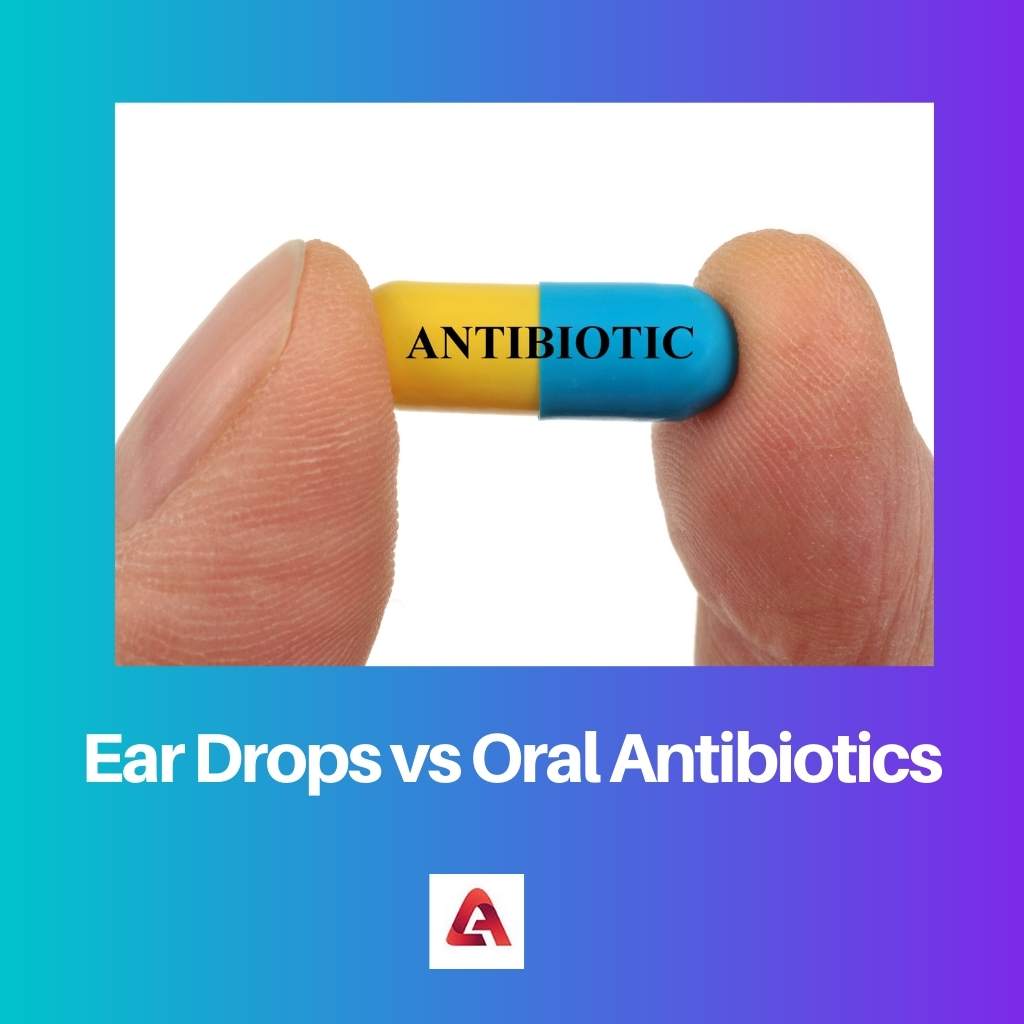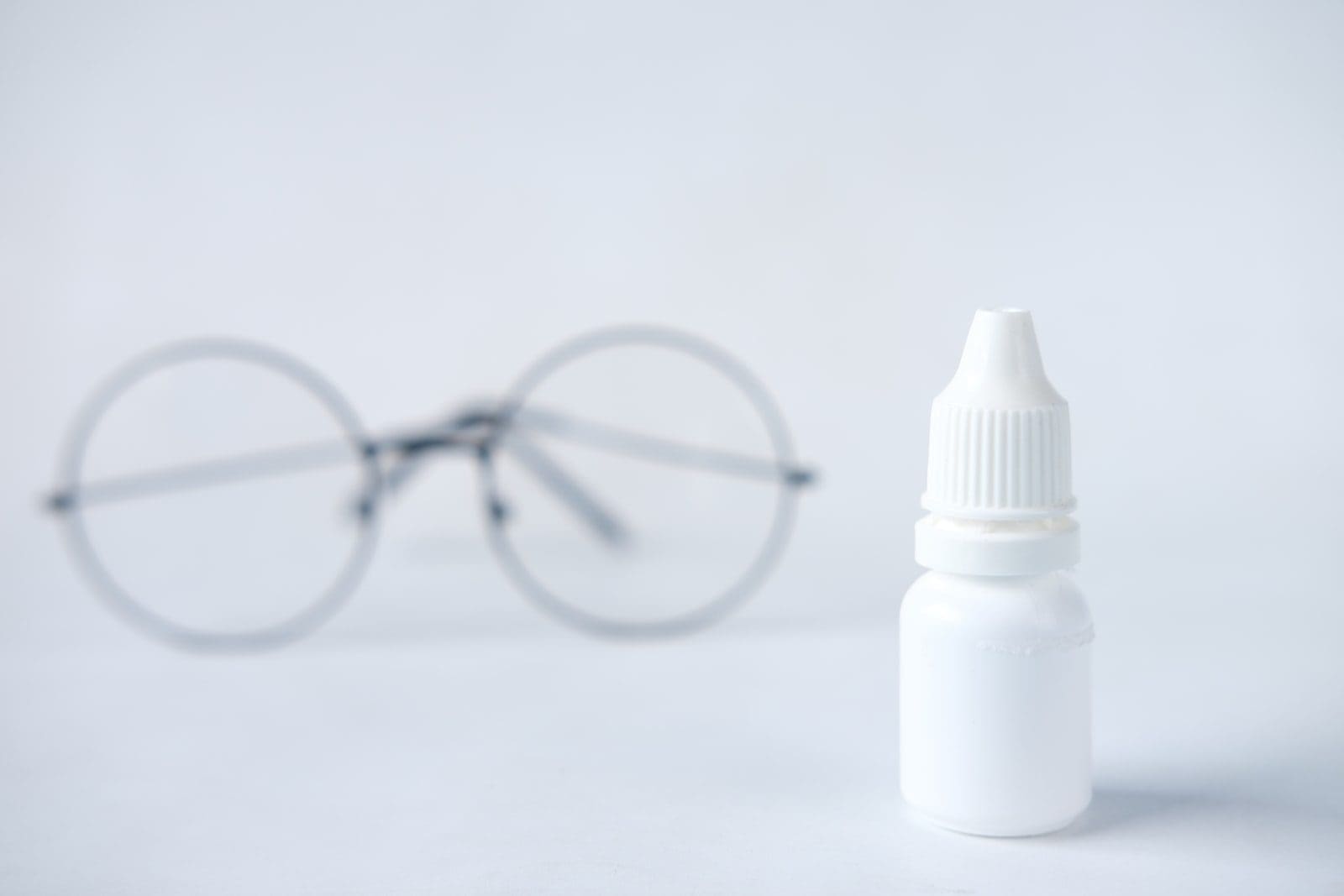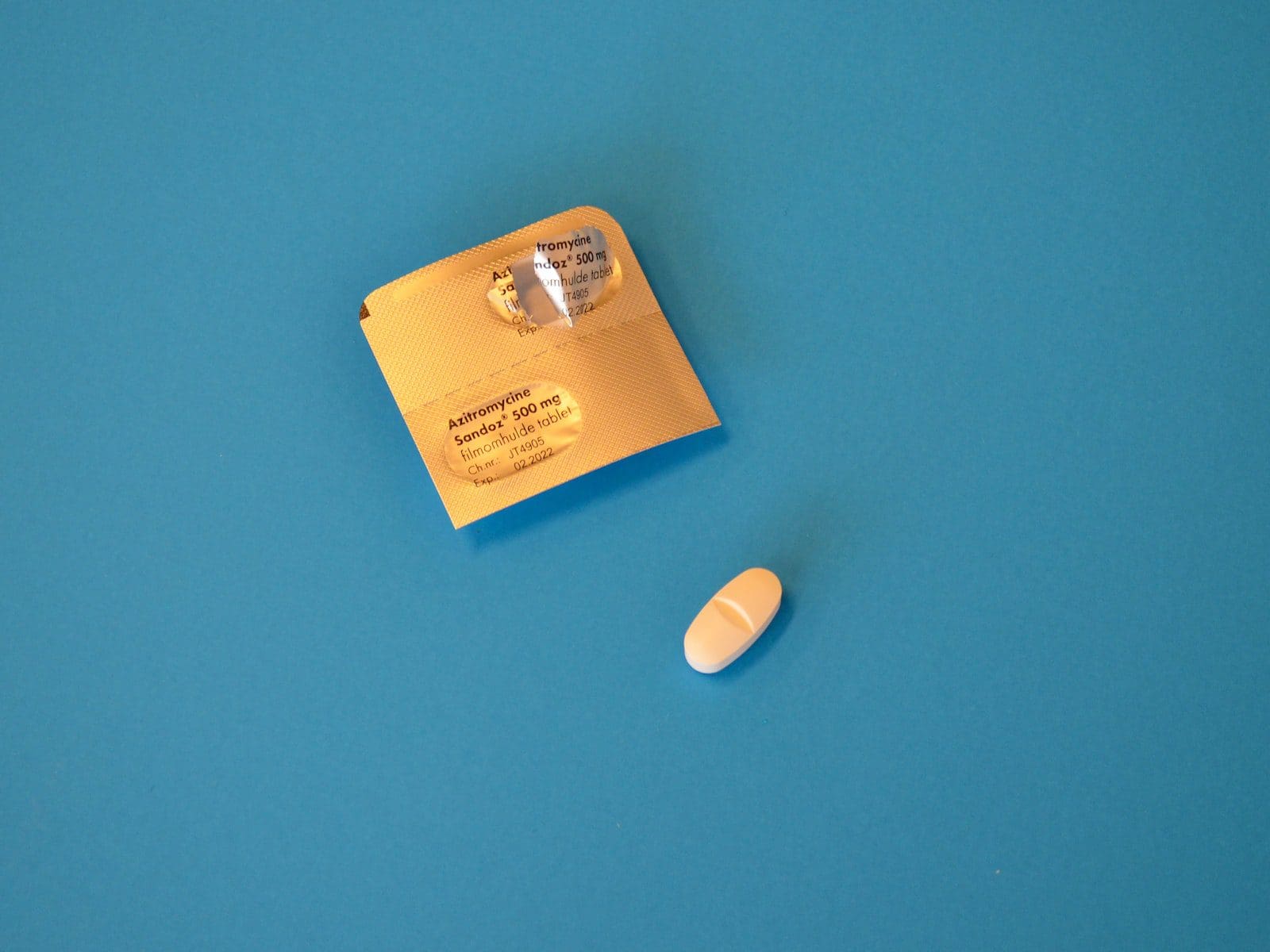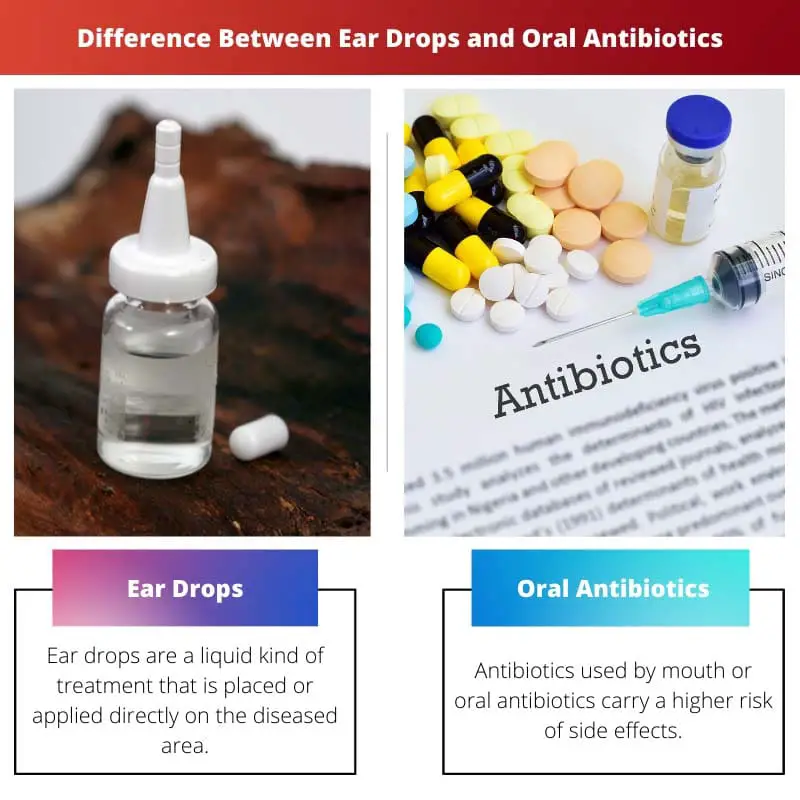Ear infections are quite common. Hence, there are many types of treatment techniques available in the market. However, it is strictly advised not to choose any medication without consulting your doctor. Otherwise, the situation can become worse. The two most common treatments available are ear drops and oral antibiotics. Let’s discuss which of the two is more effective and beneficial for faster recovery.
Key Takeaways
- Ear drops are topical medications used to treat ear infections, while oral antibiotics are medications taken by mouth to treat infections in the body.
- Ear drops are more effective for treating localized ear infections, while oral antibiotics are better suited for treating systemic infections.
- Ear drops have fewer side effects and are less likely to cause antibiotic resistance than oral antibiotics, which can lead to overuse and misuse of antibiotics.
Ear Drops vs Oral Antibiotics
The difference between ear drops and oral antibiotics is that ear drops are a liquid form of medications that are put or applied directly on the infected site, leading to a faster recovery of infections. On the other hand, oral antibiotics are tablets and capsules taken orally via the mouth, which shows their effect only they get digested and go into the bloodstream. However, the rate of recovery with the help of oral antibiotics is comparatively slower than the ear drops.

The hazards of ear drops are lower. Outside of the ear, ear drops are effective against resistant germs. When it comes to bacteria, ear drops are more effective and can eliminate them more quickly and thoroughly. Because ear drops do not dissolve in the bloodstream, they can effectively reach the infection site. The side effects of ear drops are less severe. The cost of ear drops is lower. For infections, ear drops are appropriate.
Oral Antibiotics or Antibiotics taken orally carry a higher risk. Oral antibiotics are ineffective When resistant germs are observed outside the ear. Antibiotics taken orally are less efficient against germs and can take a long time to kill them. Antibiotics taken orally only act once they’ve been digested and dissolved in the bloodstream. Oral antibiotics are more expensive than drops, especially if the infection persists and more treatment is required. Oral antibiotics are more effective in the treatment of Swimmer’s Ear.
Comparison Table
| Parameters of Comparison | Ear Drops | Oral Antibiotics |
|---|---|---|
| Side effects | Fewer side effects. | Higher chances of side effects. |
| Risks involved | Fewer Risks | Higher chances of risks involved |
| Infection outside ear | Ear drops work better for outside ear infections. | Oral Antibiotics can not work efficiently. |
| Effectiveness on bacteria | More effective and can kill faster. | Less efficient on bacteria. |
| Dissolution into bloodstream | Do not get dissolved into the bloodstream, hence works faster. | Shows effect only after getting dissolved into the bloodstream, after being digested. |
| Expensive | Less expensive. | More expensive. |
| Suitable for | Infections, especially outside the ear. | Treatment of Swimmer’s Ear. |
What are Ear Drops?
Ear drops are a liquid treatment placed or applied directly on the diseased area, resulting in faster infection recovery. There are fewer dangers with ear drops. Outside the ear, ear drops are effective against resistant germs. Ear drops are more efficient against bacteria, killing them more quickly and thoroughly. The reason is the ear drops do not dissolve in the bloodstream. They can efficiently reach the infection site.
There are fewer side effects with ear drops. Ear drops are less expensive than any other treatments available for ear issues. Infections can be treated using ear drops. Before using any ear drops, people who have a hole or tube in their eardrum should consult their doctor.
The drops have the potential to cause pain, illness, and even hearing loss. Other types of pills and capsules are also available that are administered by mouth and have no action until they are digested and absorbed into the bloodstream. Thus, the rate of recovery with ear drops is far more effective and faster than any other medication technique.

What are Oral Antibiotics?
Antibiotics used by mouth or oral antibiotics carry a higher risk of side effects. When resistant germs may be observed outside the ear, oral antibiotics will not work properly. Antibiotics taken orally have a lower efficacy against bacteria and can take a long time to kill them.
Oral antibiotics are only effective once they have been digested and absorbed into the bloodstream. Oral antibiotics have been linked to an increased risk of adverse effects such as nausea, vomiting, headaches, diarrhoea, stomach pain, allergic reactions, and skin rashes. Oral antibiotics are more expensive than drops, especially if the infection does not clear up after treatment.
Oral antibiotics are more effective when it comes to conditions like Swimmer’s Ear. Swimmer’s Ear can also be treated with oral antibiotics. When the infection spreads beyond the ear, it is called otitis media. If the person has other diseases like diabetes, the chance of complications increases.

Main Differences Between Ear Drops and Oral Antibiotics
- Ear drops involve fewer risks in comparison to oral antibiotics, which involve more risks.
- Ear drops work well on resistant bacteria occurring outside the ear. On the other hand, oral antibiotics do not work appropriately when resistant bacteria can be seen outside the ear.
- Ear drops are more effective on bacteria and can kill them faster and completely in comparison to oral antibiotics.
- Ear drops do not get dissolved into the bloodstream. Hence they reach the infection site effectively. On the other hand, oral antibiotics work only after getting digested and dissolved into the bloodstream.
- Ear drops have fewer side effects. On the other hand, oral antibiotics are known to cause higher risks of side effects, such as nausea, vomiting, headache, diarrhoea, stomach pain, allergic reactions and skin rashes.
- Ear drops are less expensive. On the other hand, oral antibiotics are comparatively pricy than ear drops, especially when the infection does not get cured, and more treatment is required.
- Ear drops are suitable for infections. On the other hand, oral antibiotics are better for the treatment of issues such as Swimmer’s Ear.

- https://onlinelibrary.wiley.com/doi/abs/10.1111/j.1742-1241.2006.01005.x
- https://www.bmj.com/content/352/bmj.i308/rapid-responses?int_source=trendmd&int_medium=cpc&int_campaign=usage-042019

The informative comparison between ear drops and oral antibiotics offers valuable guidance for patients seeking effective treatment for ear infections. This detailed analysis can assist individuals in making well-informed decisions about their health.
Well expressed, Joel47. Understanding the nuances of treatment options is crucial for individuals navigating ear infection treatment.
I completely agree, Joel47. Patients can benefit significantly from such comprehensive insights into available treatment methods.
The detailed insights into the pros and cons of ear drops and oral antibiotics shed light on the importance of seeking professional advice for ear infection treatment. Patients must be cautious and well-informed before choosing a treatment plan.
Well stated, Imurray. Patients should prioritize consulting healthcare professionals to make informed choices about their treatment options.
I share your perspective, Imurray. Healthcare decisions require careful consideration, especially when it comes to treating common conditions like ear infections.
The detailed breakdown of ear drops and oral antibiotics provides a comprehensive understanding of their mechanisms and implications for ear infection treatment. This information is valuable for both patients and healthcare providers.
I agree, Russell. Detailed insights into treatment options can empower patients to actively engage in discussions with their healthcare providers.
Absolutely, Russell. Patients benefit greatly from having access to comprehensive information about their treatment choices.
This detailed comparison of ear drops and oral antibiotics gives a clear understanding of their effectiveness and risks. It’s important for patients to be educated about their treatment options.
Indeed, Isla. Informed decision-making is key in healthcare, especially in choosing treatment methods for common conditions like ear infections.
Well said, Isla. Knowing the benefits and drawbacks of each treatment can lead to better health outcomes.
It is essential to weigh the pros and cons of ear drops and oral antibiotics before choosing a treatment plan for ear infections. Consulting a healthcare professional is highly recommended before making a decision.
I agree with you, Victoria. Seeking professional medical advice is crucial when it comes to treating ear infections.
Absolutely, Victoria. It’s always best to be cautious and thoroughly informed before making any health-related decisions.
This article effectively demonstrates the differences between ear drops and oral antibiotics in treating ear infections. Such detailed comparisons can significantly benefit patients seeking the most suitable treatment.
I couldn’t agree more, Zwilson. Knowledge of the benefits and drawbacks of ear drops and oral antibiotics can guide patients in choosing the most effective treatment.
Absolutely, Zwilson. Patients can make more informed decisions about their treatment plans with the help of comprehensive insights into available options.
The comparison table provides a comprehensive overview of the differences between ear drops and oral antibiotics. This information is crucial for patients and healthcare providers alike.
Absolutely, Max. Having access to such detailed comparisons can help individuals make well-informed decisions about their health.
The comparison of ear drops and oral antibiotics in terms of their risks, effectiveness, and suitability for specific infections is highly informative. Patients should carefully consider these factors before making treatment decisions.
Well put, James37. Understanding the nuances of treatment options can lead to better health outcomes for individuals dealing with ear infections.
Absolutely, James37. Informed decision-making plays a critical role in effective healthcare management, especially when it comes to choosing treatment methods.
The detailed distinction between ear drops and oral antibiotics, including their side effects and effectiveness, is a valuable resource for those dealing with ear infections. This information can guide patients in choosing the most suitable treatment.
Well articulated, Cameron. Patients can benefit greatly from understanding the details of different treatment methods and their implications.
Absolutely, Cameron. Knowing the nuances of treatment options for ear infections can empower patients to actively participate in their healthcare decisions.
The explanation of how ear drops and oral antibiotics work differently in treating ear infections is quite enlightening. Understanding the mechanisms of each treatment method is vital for patients.
I couldn’t agree more, Wwright. It’s important for patients to have a clear understanding of how different treatments work in order to make informed choices.